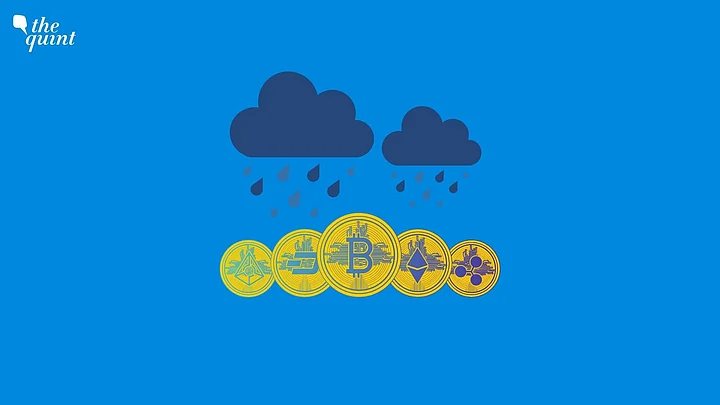On 7 April, National Payments Corporation of India (NPCI) issued the following statement:
"With reference to some recent media reports around the purchase of Cryptocurrencies using UPI, NPCI would like to clarify that we are not aware of any crypto exchange using UPI."
Within a week, several cryptocurrency trading platforms disabled UPI as a payment option for Indian users.
Coinbase, shortly after its official debut in India, disabled UPI payments, effectively blocking users from purchasing crypto with rupees, TechCrunch reported.
CoinDCX has disabled the options for users to top up their in-app wallet using UPI and IMPS, Inc42 reported. The app only shows the option for a bank transfer into the wallet.
WazirX has also shut down UPI as a payment option.
CoinSwitch Kuber has disabled rupee deposits on its app via both UPI and bank transfers, blocking users from buying crypto with rupees, according to The Economic Times.
Digital wallet Mobikwik, which was reportedly a payments partner for all four exchanges, had stopped support for all crypto trading even before the NPCI statement.
Here's what we know so far.
Coinbase Launch May Have Caught NPCI's Attention
NPCI's ambiguous statement came hours after Coinbase, one of the biggest crypto exchanges in the world, officially launched in India with UPI support.
The exchange says it is committed to working with authorities to ensure it is "aligned with local expectations and industry norms."
Smaller platforms offering UPI support had flown under NPCI's radar so far, but Coinbase caught its attention, reports suggest.
"Coinbase, because of its scale and the much-hyped event on Thursday, has caught everyone’s attention. This is now being investigated. After the NPCI clarification, there is little left for banks to do other than stop these accounts," a person aware of the matter told ET.
The person added that the NPCI likely had to step in since there was no clarity on the legality of cryptocurrencies in the country yet, the report mentioned.
"The NPCI statement implies a duty of disclosure – or, at least, the expectation of disclosure (even if not expressly required in law)," technology lawyer Ryan Gerard Wilson told The Quint.
He added that the reaction to stop UPI access is likely a move to mitigate risks until the government clarifies its position from a policy perspective.
The Question of Legality
In India, crypto exists in a legal grey zone. While there are no laws or formal restrictions which prohibit crypto exchanges from using UPI services, there is regulatory uncertainty.
The RBI doesn't have a favourable view of virtual currencies.
In February this year, after announcing the monetary policy rates, RBI Governor Shaktikanta Das said that cryptocurrencies are a big threat to the financial and macroeconomic stability of India.
Shortly after, Deputy Governor T Rabi Sankar recommended a cryptocurrency ban, calling them akin to Ponzi Schemes.
"The RBI and NPCI’s stance on crypto has always been decidedly cold. The Indian banking ecosystem has also taken its cues from this and maintained an arms-length approach from the crypto sector," Anupam Shukla, partner, Pioneer Legal told ET.
He said that this was why crypto exchanges can only provide limited payment options to their users in India.
UPI apps also appear to be keeping their distance from crypto. Mobikwik halted crypto services before NPCI's statement and Paytm told BusinessLine that it is not a mode of payment for crypto.
UPI apps keep blocking IDs associated with crypto exchanges, forcing them to keep changing their UPI ID to continue offering the UPI support, a source told the publication.
The UPI transactions of Coinbase were also being completed through multiple UPI accounts, The Economic Times reported.
The exchange, in response, said that it is standard practice across the industry "to work with multiple payment aggregators to give users the best experience and to create redundancy.”
Another Blow to Crypto
The withdrawal of UPI and, in some cases, bank transfers, will take a heavy toll on the industry, which is already struggling under the new tax regime.
Budget 2022 saw Finance Minister Nirmala Sitharaman announce that any income from the transfer of 'virtual digital assets' would be taxed at 30 percent and a 1 percent TDS (tax deducted at source) will be charged on payments made using digital assets.
This was initially met with optimism since people saw it as a sign that the government was moving to legitimise cryptocurrency. However, post 1 April, after the new regime kicked in, there has been a sharp decline in trading volumes.
According to data collected by research firm Crebaco, trading volume has dropped by 72 percent on WazirX, 59 percent on ZebPay, 52 percent on CoinDCX and 41 percent on BitBns between 6 and 10 April, Coindesk reported.
The situation is likely to get worse since the withdrawal of UPI support will further discourage trading. The 1 percent TDS will kick in from July, which will likely make matters even worse, when it comes to trade volume.
(With inputs from BusinessLine, The Economic Times and Coindesk)
(At The Quint, we question everything. Play an active role in shaping our journalism by becoming a member today.)
